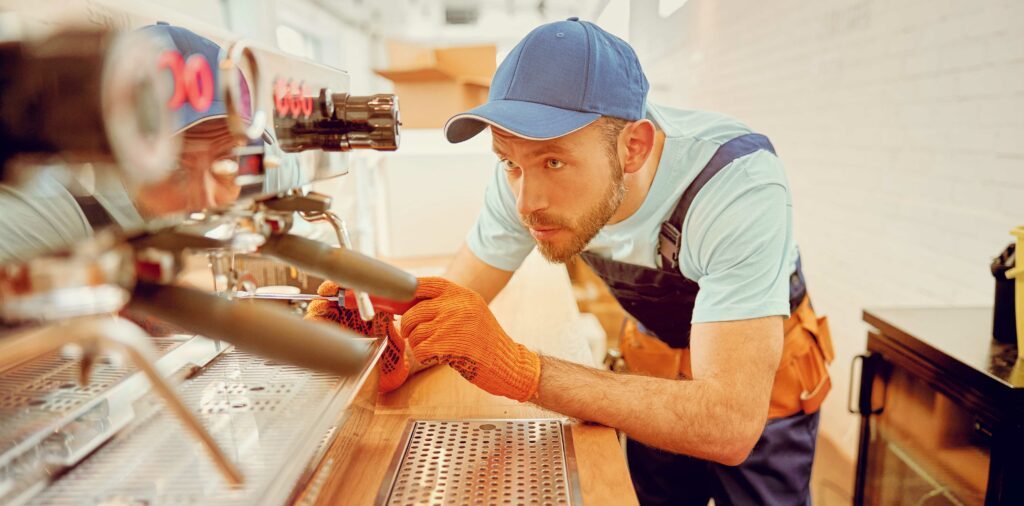Maintaining Your Grease Trap and Commercial Garbage Disposal
Making sure all of your equipment is in proper working order is an important part of running a busy commercial kitchen. A commercial kitchen’s efficiency and safety largely depends on the well-being of its machinery and equipment, including the grease trap, commercial garbage disposal, and other critical appliances.
There is a multitude of commercial kitchen equipment that requires attention, including ovens, ranges, fryers, refrigerators, and dishwashers.
Each appliance comes with its own set of challenges, demanding a different approach to maintenance. Commercial ovens, if not routinely cleaned, can accumulate grease and food particles which can potentially lead to a fire hazard. Similarly, commercial refrigeration units require regular checks and servicing to ensure they are operating at the right temperature to prevent food spoilage.
The water filtration system in commercial dishwashers must be checked and cleaned regularly to prevent limescale build-up. The fryers require consistent cleaning and oil change to avoid food contamination.
Every piece of equipment, despite its size or function, contributes to the overall productivity of the commercial kitchen and can’t be overlooked.
Malfunctioning equipment harms your business twofold. First are the repair/replacement costs. Commercial kitchen appliances are more expensive than their residential counterparts.
And if something needs to be repaired, it’s harder to find the specialized expertise to repair commercial kitchen equipment.
You also have to consider the lost sales when a critical piece of kitchen equipment goes down. Unfortunately it always seems to happen in the middle of a busy lunch or dinner rush.
Having to wait until the appliance can be repaired or delivered and installed requires you to either shut the doors or serve at a limited capacity.
Frequent use means more wear and tear on your commercial kitchen equipment. Whether it is worn out gaskets or old wiring, even the most well made kitchen appliances don’t last forever before they start to break down.
Sanitization might also cause problems. Hygiene standards in commercial kitchen call for rigorous cleaning, but this might damage equipment if not done properly. Chemicals or excessive moisture can affect electrical components or cause corrosion.
You should always have your employees use a dry rag after wiping down surfaces to prevent leftover chemicals from soaking into tender areas of any equipment.
Misuse of sanitization can lead to electrical problems. Faulty wiring from moisture can cause the device to quit working. This spells disaster when it comes to keeping your kitchen up and running.
One of the most vital components of a commercial kitchen that often goes unnoticed is the grease trap. This essential device is designed to intercept most greases and solids before they enter a wastewater disposal system. Despite its importance, maintaining a grease trap can pose significant challenges.
Left unattended, the accumulation of fats, oils, and grease can lead to blockages, causing serious damage not just to your kitchen but also to the entire plumbing system. The unpleasant odor from a poorly maintained grease trap can also detract from the dining experience.
Consequently, frequent cleaning and regular maintenance are a must, ensuring smooth operations and a pleasant environment for both staff and customers. You should also try to keep as many food solids out of your grease trap as possible.
Commercial garbage disposals also play a significant role in maintaining the cleanliness and functionality of a commercial kitchen. These powerful appliances help manage food waste effectively, contributing to a cleaner and more efficient kitchen environment. However, despite their robust design, they are not immune to issues.
From jamming due to inappropriate waste disposal to motor burnout from overuse, maintaining a commercial garbage disposal can be a challenging task. Proper use and routine maintenance, such as regular cleaning and professional inspections, can help prolong the life of your commercial garbage disposal and keep your kitchen running smoothly.
You can also consider avoiding these constant repair and replacement costs by installing an effective and affordable commercial garbage disposal alternative.
Having a proactive maintenance plan in place is a major way to overcome any challenges. This means performing regular inspections, keeping accurate records, and training staff on proper equipment usage and cleaning procedures.
Another solution is installing commercial kitchen products that don’t use water or electricity and don’t have any moving parts that can break down over time.
Avoid Problems With Our Commercial Garbage Disposal Alternative
The Drain Strainer™ can help you avoid issues with what gets put down your drains. No matter how much you focus on employee training, short cuts are always going to be taken and items are going to be put down your commercial garbage disposal that can harm it.
If you want to avoid issues with clogged grease traps or garbage grinders that are leaking or have burned out motors, The Drain Strainer™ is an effective and affordable commercial disposal alternative.
Invented by a former restaurant owner, The Drain Strainer™ can eliminate issues with mangled silverware or dangers from employees putting their hands down the commercial garbage disposal trying to clear out a clog.
Click here to find out more about how our product can keep your commercial kitchen drains running smoothly.
Maintaining all these components in your commercial kitchen may seem daunting. You can make this process easier by installing commercial kitchen equipment that is worry free.
It’s also crucial to instill a sense of respect and care for the equipment among your kitchen staff. A well-maintained kitchen is the backbone of a thriving food service establishment.
A commercial kitchen is not just about cooking and serving food. It’s about managing resources effectively and maintaining a healthy environment for both your employees and customers.
By understanding the challenges of maintaining kitchen equipment and proactively addressing them, you can ensure that your kitchen remains a well-oiled machine, ready to deliver the best experiences for your guests.

